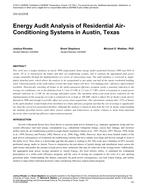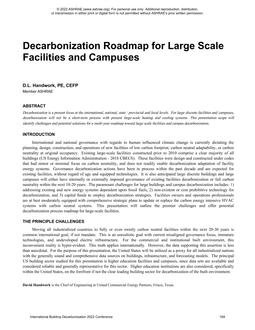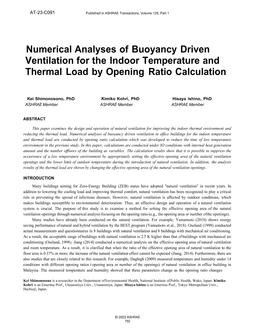
CH-12-C018 — Energy Audit Analysis of Residential Air-Conditioning Systems in Austin, Texas
This work uses a unique database of nearly 5000 single-family home energy audits performed between 2009 and 2010 in Austin, TX to 1) characterize the homes and their air-conditioning systems, and 2) estimate the aggregated peak power savings attainable through the implementation of a series of conservation steps. The audit database is restricted to singlefamily detached units, which allows the analysis to be extrapolated to just under one-half of the Austin residential building stock. Characterization of the audit homes reveals that many homes still have "low-hanging fruit" efficiency improvements available. Theoretically enrolling all homes in the utility-sponsored efficiency program yields a potential reduction in the average air-conditioner size in the database from 3.1 tons (11 kW) to 2.2 tons (7.7 kW), which corresponds to a peak power demand reduction of 1.8 kW for the average individual system. The maximum utility-scale peak power reduction for the implementation of this program city-wide is estimated to be as high as 200 MW, which is almost 8% of Austin’s peak electric demand in 2008 and enough to possibly offset new power plant acquisitions. Our calculations estimate that ›97% of homes in the audit database would benefit from enrollment in a home efficiency program and that the cost of savings is significantly less than the cost of new generation facilities. Although this analysis is based on data from the City of Austin, understanding the methods described herein could allow electric utilities and homeowners in similar climates to make better-informeddecisions when considering efficiency improvement programs.
Product Details
- Published:
- 2012
- Number of Pages:
- 8
- File Size:
- 1 file , 740 KB
- Product Code(s):
- D-CH-12-C018
- Note:
- This product is unavailable in Russia, Belarus


